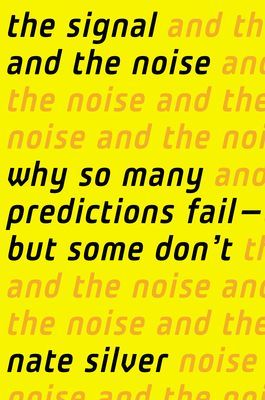
The Signal and the Noise Why So Many Predictions Fail--but Some Don't
The founder of FiveThirtyEight.com challenges myths about predictions in subjects ranging from the financial market and weather to sports and politics, profiling the world of prediction to explain how readers can distinguish true signals from hype, in a report that also reveals the sources and societal costs of wrongful predictions.
Reviews
Jeff Sexton@bookanonjeff
Jowanza Joseph@josep2
David V.@davidmar
Chris Aldrich@chrisaldrich
Jeni Enjaian@jenienjaian
Sarvagnan S@sarvagnan
Adam@adam
Ilia Markov@ilia
Michael Camilleri@pyrmont
Kesar Varma@kcv4
Pratik M@pcmhatre
José@joserss
Rafael Matsumoto@rafaelmatsumoto
Sara Sunshine@sarasunsh
Jayme Cochrane@jamesco
Satyajeet Pal@readerpal
Coleman McCormick@coleman
Rohit Arondekar@rohitarondekar
Akinwale Oshodi@akoshodi
Gabriel Ayuso@gabrielayuso
Alex K@alexk
Alexandra Vo@ph_anh
Boothby@claraby
Jens Madsen@ingemann